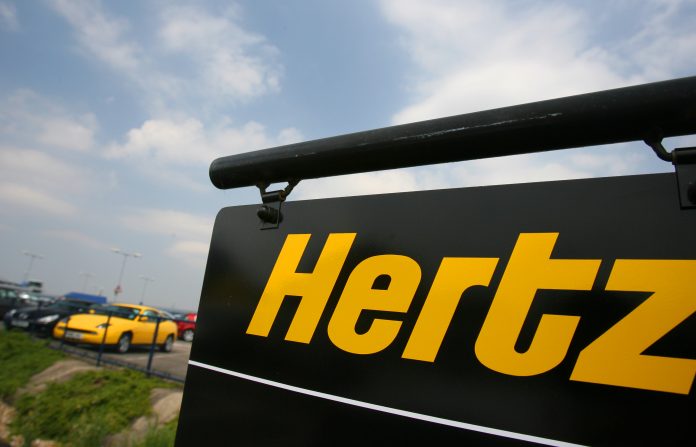
by Desiree Homer
A Deeper Dive Into the Emerging Market
During Episode 48 of the Dealer News Today podcast series, Dave Cantin spoke with Zo Rahim from Cox Automotive about the impact of Hertz Corporation’s bankruptcy and the influence their on-going financial instability might have on the industry. With automakers only now emerging from pandemic-related manufacturing shutdowns, experts are already predicting a fragmented and volatile used car market, and many believe the Hertz news is destined to change the landscape even further.
A Flooded Used Vehicle Market
Hertz Corporation (NYSE: HTZ) filed for Chapter 11 bankruptcy, which includes North American subsidiaries Hertz, Dollar, Thrifty, Firefly, Donlen, and Hertz Car Sales. The creditors continue to discuss next steps, which might include taking possession of the rental giant’s fleet or unloading those units directly into the wholesale market. It is expected that dealers will begin to see the effects of any creditor decisions by late July or early August. For many, the more immediate concern for the market is a flood of used inventory heading to auction.
The filing initiated a 60-day waiting period before Hertz’s secured lenders can begin foreclosure actions. While talks continue for finalized arrangements, there is still a chance that Hertz can shed some of those cars at auction before a truly mass exodus of their sellable vehicles begins. Roughly 29% of their current fleet were program vehicles, but approximately 400,000 non-program vehicles are solely owned by the company, and all are candidates to become part of their corporate purge. Until the details are ironed out and finalized, it’s hard to predict just how many used rentals dealers will see at this summer’s auctions, but most are expecting to see an abundance of Chevrolet Malibu and Ford Focus stock hit the market over the next few months.
Are Other Rental Companies in Danger?
The travel and vacation industries have taken a hit because of the COVID-19 shutdowns. When a segment-leading company like Hertz files bankruptcy, it upgrades scrutiny of their entire market. Other companies have begun off-loading portions of their aging fleets in an effort to streamline expenses and maintain solvency. While there may not be any other bankruptcy announcements right now, widespread disruption in rental demand adds tremendous uncertainty to this part of the market. Even financially healthy Hertz competitors are trimming their inventories, which might improve their overall positions, but is ultimately adding even more used inventory to the potential glut. This data changes almost daily, but overarching sentiments suggest huge drops in used vehicle pricing to last through the end of the year, and adjustments within car dealerships need to happen now.
Bracing for Used Vehicle Volatility
Another contributing factor to the ever-changing used market is consumer demand. New and used car sales fell sharply in March and April, but nearly every corner of the U.S. is reopening and seeing a rebound in sales numbers. There is also a surge in customers returning their leased vehicles, as many contracts expired during the shelter in place orders. All of this is likely to result in broad reductions to used car prices, which could be attractive to buyers returning to the showrooms. Dealers are eager to make deals and know that profit margins on used inventory are historically more robust. However, the amount of inventory potentially hitting the market will also be historic, and it’s impossible to predict how numbers will shake out beyond the moment.
A Reduction in New Models Could Help
Many dealers are trying to focus on selling off their used inventory, either sending them to auction to purge aged units, or with pricing incentives at the consumer level. Adding to the trending push toward used model sales is the limited supply of new vehicles right now. Many car buyers are already unable to find suitable replacements for their expired leases, and dealers are experiencing an abundance of backorders for new vehicles. Manufacturers stalled production for months, and others have already shifted some of their lines to producing 2021 models. Additionally, rental companies typically account for nearly 10% of new model sales every year, and the Hertz bankruptcy effectively severs the buying relationship with key automakers, leading to bottom line issues in the manufacturing sector. The 2020 model pools are drying up, which offers encouragement for buyers to consider used or certified pre-owned vehicle purchases instead. While Hertz’s financial troubles might foreshadow thousands of used vehicles entering the market, there could be an increased demand for those units as new models grow scarce.
While the used car market’s volatility is expected to continue, the good news is that the Hertz bankruptcy will create similar challenges for all dealers. The market will change and wholesale process might change, but the pricing will drop and level the market for everyone. There are a host of factors that will contribute to how things play out for dealerships in the weeks to come, and there isn’t much of a crystal ball to help prepare for the effects of the Hertz bankruptcy. Ultimately, we all might have to take solace in the knowledge that everyone will be riding the roller coaster together.












